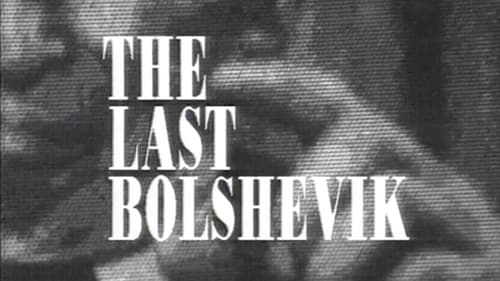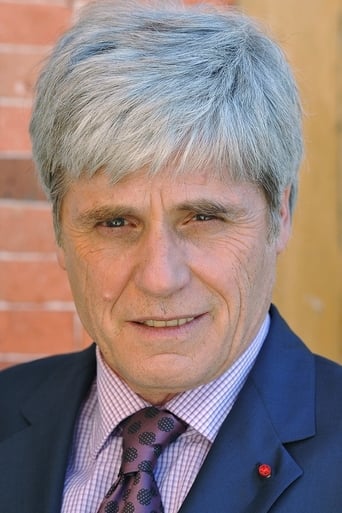Stevecorp
Don't listen to the negative reviews
Odelecol
Pretty good movie overall. First half was nothing special but it got better as it went along.
CrawlerChunky
In truth, there is barely enough story here to make a film.
Fatma Suarez
The movie's neither hopeful in contrived ways, nor hopeless in different contrived ways. Somehow it manages to be wonderful
palmiro
Taking his cue from a citation of George Steiner to the effect that it is not history that we remember ("was eigenlich geschehen ist"), but the images of that past time, Marker has taken liberties with the official images of the Soviet era to construct a montage that takes pot shots at the rift between the official images of the USSR and the reality. Easy enough to do, but this hardly illuminates the historical truth about the circumstances under which an attempt was made to fulfill the dreams of Bolsheviks like Medvedkin--namely to raise, in little more than a blink of the eye, the cultural and material standard of living of the degraded and oppressed peasantry and proletariat of Czarist Russia. In a sense, his homage to Medvedkin ends up demeaning the utopian spirit of the latter and reduces, perhaps unwittingly, Medvedkin's endeavors to something foolhardy and ingenuous at best.
chaos-rampant
Chris Marker, again with a set of images to interrogate. About a Soviet director who believed in the collective dream, about the collective dream as shaped by cinema, and the peoples who grew despondent and fearful of it (though not of cinema).The tools of this cinematic interrogation, which is fascinating in scope and layers, are what Marker and his friends were developing in the Left Bank some forty years ago. Even as the most blatant fabrication, the filmed image carries truths for him; the terrified look of an actor playing a muzhik in a propaganda film when faced with Soviet authority. Meaning something exists embedded in the frame itself, which we cannot wrestle away by removing context.Marker carefully plants here some of the most erudite insights into the reality of cinema. We are told for example how the starving, raggedy workers in the collective farms turn en masse to enjoy propaganda films that portray them, the very same persons, as robust, content worker bees happily singing and laughing as they work the fields. How they walk away from this spectacle satisfied to have been entertained.Old faces are interviewed for the sake of remembrance, to commemorate the enthusiasm of the revolution when trains converted as cinemas scoured the countryside to make films for the people, and the subsequent anxiety and horror. The odd ones who survived the purges, who turned from creators of events to mere spectactors or victims of them and who are merely a generation of relics now, with a head full of memories and perhaps a good story about Vertov to tell.This is what Godard would be trying to do in the 90's, but the essay here is more precise and cutting, less about vague soliloquy and the camera and more about the people who perhaps held it at one time. I come out of this with the urge to see not any of Medvedkin's films, but more Marker.-edit a few years later- Having now seen one of Medvedkin's films, Schastye, I have to say it's a masterpiece and you should seek it out.
Andres Salama
The Last Bolshevik is a documentary about the Soviet filmmaker Alexander Medvedkin. French Director (and fellow traveler) Chris Marker obviously admires his subject, and he means this to be a sympathetic film. Yet, I find it difficult to share his admiration. On an artistic level, even though I have never seen a Medvedkin film, and it is impossible to judge a director's craft by the segments shown here (lasting a few minutes), I can say there is nothing in the movie that makes me suspect we are in front of a major artist. More complicated is the political aspect of his life. He was a life long unrepentant communist. The film makes much of the fact that his movies represented the soviet artistic vanguard that Stalin ended dramatically in the early 1930s. Yet, during the Stalin era, not only he was not repressed, but he was able to make Stalinist movies (Marker show some segments of these movies, too). On the whole, this is a fine movie about a man whose life I consider to have been less than exemplary
m.wahl
Engrossing history of the Soviet film director Medvedkin and the difficulties of Soviet cinema in the 20s through 40s. Includes clips of numerous films which have not been seen since they were made.A version is narrated in English with subtitles for Russian and German.




